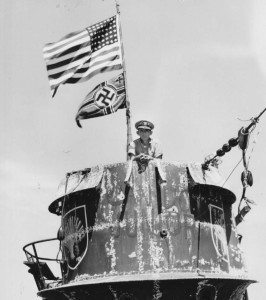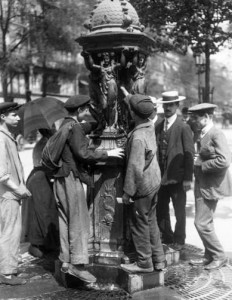Sandy and I recently shared cocktail hour with some good friends of ours. Joe grew up in upper New York in a town (Malone) twelve miles from the Canadian border and 58 miles south of Montreal. After World War II had ended, Joe’s father told him about the German U-boat activity in the St. Lawrence River and the effect it had on the Canadians.

According to Joe’s father, the French Canadians weren’t too worried about the German occupation of France and the collaborationist government known as Vichy. That is until a U-boat was discovered in Montreal Harbor and stories of German spies being off loaded onto Canadian soil. That woke them up.
The Battle of the St. Lawrence
This is the term used today to describe the periods of time when the U-boats actively hunted down convoy boats in the St. Lawrence River. There were two primary periods of activity: May 1942 to September 1943 and then a resumption of activity in the fall of 1944 (due to a new technology on the submarines that allowed them to stay submerged longer). Read More Hallucination Caused by Fear?

